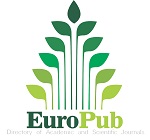The Rhetoric of Restriction in the Seven Long Chapters of the Holy Quran and the Problematics of its translation into English - An Analytical study of Abdullah Yusuf Ali’s English translation of the meanings of the Holy Quran. بلاغة القصر في السبع الطوال
Abstract
The Holy Quran - being a divine text – is the master piece of Arabic rhetoric which incapacitated all the mankind to produce a text like it. Therefore, the Holy Quran has always been the center of concern for the Muslim scholars and rhetoricians who carried out intensive studies in its different aspects. One of these aspects is the miraculous rhetoric of the Holy Quran which highlights the beauty of its language, style and coherence. The Style of Restriction (أسلوب القصر) is one of the important themes of the Arabic rhetoric which contains various rhetorical features and plays a pivotal role in shaping the connotation of the speech. Hafiz Abdullah Yusuf Ali (14 April 1872 – 10 December 1953) was a South Asian Islamic scholar who translated the Quran into English. His translation of the Quran ranks alongside the translation of Marmaduke Pickthall as the most widely-known and used in the world. The research aims: to point out different forms of the Style of Restriction in the Seven Long Chapters of the Holy Quran, to highlight its importance by the detailed analysis of these forms, to analyze the capacity of English translation in depicting the rhetorical beauty of Restriction and to what extent Abdullah Yusuf Ali succeeded in translating this beauty into English language. The research shall use descriptive and analytical approaches as it will, first, describe the importance of the Style of Restriction, its various forms and devices, and then analyze it in depth at the core of the study.
Key Words: Rhetoric, Quranic Rhetoric, Quranic Translation, Rhetoric of Restriction











